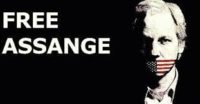R2K Statement: State Security Agency should NOT be “vetting” HIV Activists
The Right2Know Campaign is appalled by reports that the State Security Agency is “vetting” delegates to this year’s International AIDS Conference. The conference will be held in Durban next week and about 18,000 delegates are expected to attend.
The involvement of State Security in ‘mega’ events such as this is an increasingly troubling practice, with a history of leading to clamp-downs on activists’ right to protest and organise. This was the case at the 2002 World Summit on Sustainable Development and the 2010 FIFA World Cup. (See R2K’s 2015 ‘Big Brother’ report: http://bigbrother.r2k.org.za)
This raises many questions. What possible threat to national security would these delegates pose? On what grounds will delegates be denied entrance? What is the SSA intending to use this information for, and with whom will the information be shared with? In a society where surveillance of activists and civil society is increasing, why should the SSA have access to information about the delegates of the conference beyond what they have provided in registration?
In a country where HIV/AIDS is still stigmatised, there is a real risk that State Security inspecting delegates’ personal information will perpetuate the fear and stigma around the disease. Many activists across the world are coming to this conference, some of the delegates are sex workers, members of the LGBTIQ community, people living with HIV/AIDS who face criminalisation and censorship in their own countries. They have the right to privacy and should not be subject to a vetting process that may further compromise their safety and security. There is not even a guarantee that their information will not be shared with other government agencies across the world, further criminalizing these delegates.
We call on the International AIDS Society, the organisers of the conference to write to the South African State Security Agency and object on the grounds that it is a violation of freedom of association and expression and the right to privacy.



